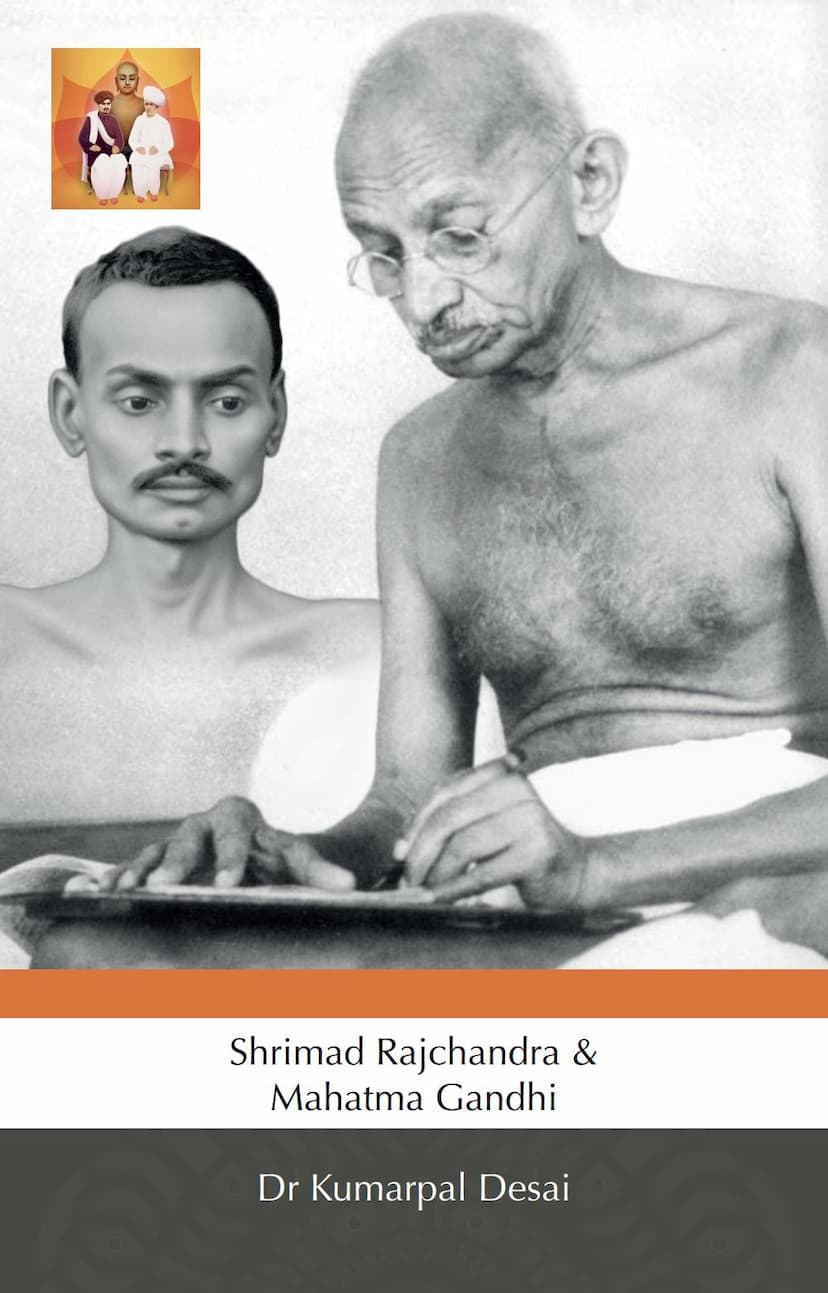Shrimad Rajchandra And Mahatma Gandhi
Added to library: September 2, 2025

Summary
This book, "Shrimad Rajchandra & Mahatma Gandhi" by Kumarpal Desai, published by Raj Saubhag Satsang Mandal, explores the profound spiritual connection between Shrimad Rajchandra, a revered Jain saint and scholar, and Mahatma Gandhi, the father of the Indian nation. The book highlights how Shrimad Rajchandra significantly influenced Gandhi's spiritual development and shaped his philosophy of truth, non-violence (ahimsa), and detachment.
Key aspects of the book include:
-
Introduction to Shrimad Rajchandra: The book provides a life sketch of Shrimad Rajchandra, born in 1867 in Gujarat, India. It details his extraordinary intellectual abilities, including his prodigious memory, his mastery of the "Shatavdhan" (performing a hundred mental tasks simultaneously), and his early inclination towards spiritual pursuits. Despite opportunities for worldly fame and fortune, he prioritized spiritual realization. His writings, such as "Mokshmala" and "Atmasiddhi Shastra," are presented as profound expositions of Jain philosophy and the path to self-realization.
-
The Spiritual Bond with Mahatma Gandhi: The book emphasizes the pivotal first meeting between Gandhi and Shrimad Rajchandra in 1891. Gandhi, a young barrister, found in Shrimad a spiritual guide who profoundly impacted his worldview. Gandhi sought Shrimad's counsel during his spiritual crises, and Shrimad's insightful letters, particularly his answers to Gandhi's 27 spiritual questions, strengthened Gandhi's faith in Hinduism and his resolve to live a life of truth and non-violence.
-
Key Messages and Philosophies: The book elaborates on Shrimad Rajchandra's teachings, focusing on:
- Fearlessness: Derived from spirituality and detachment from the material world.
- Satsang: The importance of associating with virtuous and self-realized souls for spiritual growth.
- Moksha (Liberation): The ultimate goal of human life, attainable through a human birth, which is rare and precious.
- Karuna (Infinite Compassion): Extending compassion to all living beings, even to unseen organisms, as demonstrated by Shrimad's actions and Gandhi's interpretation.
- Sukh (Happiness): Differentiating between illusory happiness derived from senses and material possessions, and true, eternal happiness found within the soul.
- Atm Dharma (Religion of the Soul): Emphasizing the universal truth of the soul, transcending sectarianism and dogma.
- Elimination of Dogmatism: Advocating for a universal understanding of truth, free from rigid beliefs and the superiority of one sect over another.
- That Which Is: The importance of discarding dogmatic beliefs to seek the ultimate eternal truth.
-
Gandhi's Personal Recollections: The book includes excerpts from Gandhi's autobiography, "My Experiments with Truth," where he recounts his deep admiration for Shrimad Rajchandra's character, knowledge, and spiritual fervor. Gandhi considered Shrimad his "spiritual guide" and attributed his decision to observe celibacy and his commitment to non-violence to Shrimad's influence.
-
Endorsements and Testimonials: The book features appreciations and reflections from various scholars, saints, and public figures who highlight Shrimad Rajchandra's pre-eminent spiritual status and his profound impact on Mahatma Gandhi and the world. These testimonials underscore Shrimad's role in shaping Gandhi's philosophy of ahimsa, truthfulness, and renunciation.
In essence, "Shrimad Rajchandra & Mahatma Gandhi" is a tribute to the transformative spiritual relationship between these two towering figures of India's spiritual and political history. It demonstrates how the profound wisdom and exemplary life of Shrimad Rajchandra provided the spiritual bedrock for Mahatma Gandhi's philosophy and his movement for Indian independence, ultimately influencing global thought on non-violence and truth.